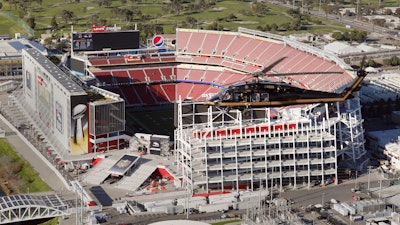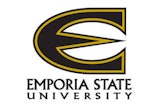
A judge ruled that the San Francisco 49ers will be able to slash their property tax bill by millions over the remaining 30 years of their lease at Levi’s Stadium.
A Santa Clara County judge has approved a property tax cut of $180 million, the San Francisco Chronicle reported Wednesday.
In a ruling last month, Superior Court Judge Helen Williams rejected a lawsuit filed by Santa Clara County Assessor Lawrence Stone that challenged the taxable value of the stadium as set by an assessment appeals board in 2019.
The ruling affirmed the earlier decision to slash the 49ers’ property tax bill for the publicly owned stadium from $12 million to $6 million per year, records show, as reported by the Chronicle.
The Santa Clara Unified School District will continue to lose $2.4 million in revenue per year ($72 million in all) as a result of the ruling. Santa Clara County government will take a $32 million hit over the life of the lease. The city of Santa Clara loses $24 million in tax revenue over 30 years, according to court records.
In her ruling, the judge wrote that the assessor’s lawsuit had failed to show that the appeals board did anything wrong in resetting the 49ers’ property taxes in 2019. There was no proof the board’s decision was illegal or arbitrary or lacking in “substantial evidence,” she wrote. The lawsuit was “denied in its entirety,” the judge wrote.
In September, the judge issued a tentative decision signaling she would reject the assessor’s lawsuit. County lawyers filed objections, but the judge made her ruling final Nov. 21.
“Our belief is the 49ers should pay taxes on the whole value of the stadium,” Stone said in an interview Wednesday, the Chronicle reported. He noted he had not sued the team, but he challenged what he believes was an incorrect assessment made by the appeals board.
“We accept the Court’s ruling on this matter, which confirms the assessed value of the stadium was properly set by the independent Assessment Appeals Board in 2019,” 49ers spokesperson Brian Brokaw wrote in an email to the Chronicle.
Roger Noll, a Stanford economics professor emeritus and expert on stadium financing, said the degree to which the 49ers have fought their property tax dispute is not common.
“The 49ers probably lead the league in their aggressiveness in dealing with Santa Clara,” Noll said. I’ve never seen anyone fight as hard as many times as the 49ers.”
The tax dispute played out as the team made money and its value increased, he said.
“It’s really intriguing because they’re such a profitable operation,” Noll said. “If anything, the 49ers are doing better than the initial financial projections and the city, including the school district, is doing substantially worse.”
Mayor Lisa Gillmor, a former 49ers booster turned critic, recalled the team’s 2010 campaign to persuade local voters to approve construction of the stadium. The 49ers promised the project would cause property tax revenues to soar, she said, bringing a financial boost to local schools.
“They fooled us,” she told the Chronicle.
“The biggest losers in all of this are all the children in our community,” Gillmor said, because of the hit taken by the public school budget. She urged the assessor to appeal.
The legal dispute over the 49ers’ taxes began soon after Levi’s Stadium opened in 2014. The assessor’s office set the value of the new stadium at about $1 billion for property tax purposes. Because of what he called the 49ers’ “extensive, year-round control over the stadium,” the assessor required the team to pay taxes on the stadium’s full value, records show.
But the 49ers appealed, arguing the team was being overtaxed. The 49ers told the assessment appeals board that the team used the stadium for football during the NFL season, and it shared revenues from concerts and other non-NFL events with the city.
The 49ers should be taxed on only 40% of the stadium’s value, the team argued.
The Chronicle reported that records even show In recent years that the 49ers have not shared any revenue with the city on non-NFL events.
In 2019, to the shock of local officials, the appeals board ruled in the 49ers’ favor, declaring the team should be taxed on only 50 percent of the stadium’s value. The decision gave the 49ers an immediate $36 million tax refund. Santa Clara schools had to write a $13 million check to the team, the assessor said.
The assessor sued to overturn the decision, arguing the appeals board had wrongly ignored that the “the lion’s share of the stadium’s value and benefits” went to the football team, not the city.
But after nearly four years of litigation, the judge found no merit to the assessor’s case. After the judge issued her tentative ruling, the assessor filed a dozen objections to the decision, many of them technical, but the judge wasn’t swayed.
The county will also have to pay the 49ers’ legal bills, her ruling indicated.
Also last month, the judge issued an order to “permanently seal” a long list of financial and business records concerning the 49ers’ operation of the stadium that were put in evidence in the lawsuit. The 49ers had sought the sealing order, saying the team’s “competitive position will be compromised” if the records became public.
The Chronicle reported that the judge ruled that the team’s desire for confidentiality was more important than the “right of public access” to the court records.





































